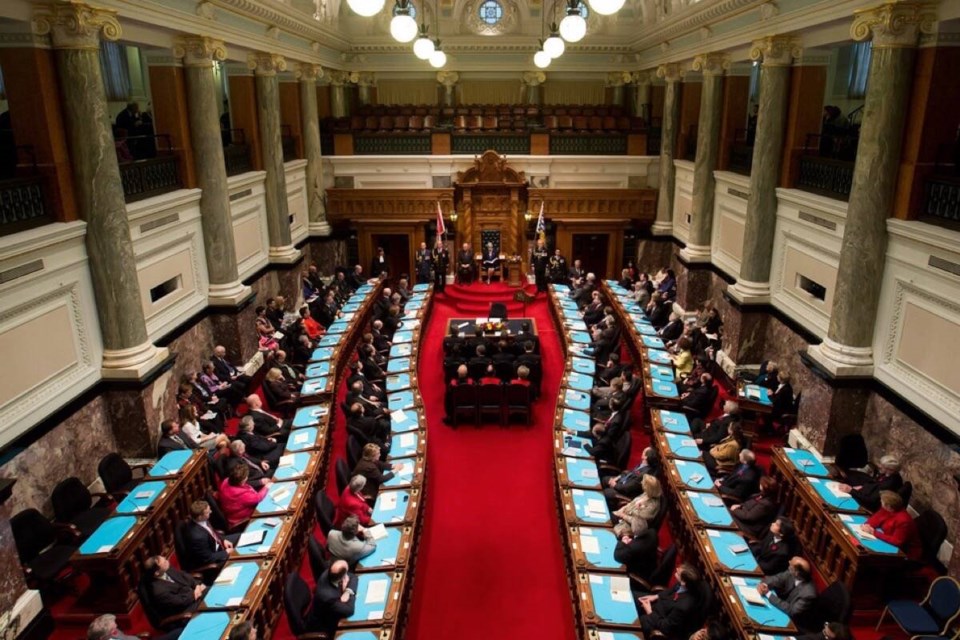It would have seemed unimaginable even 20 years ago, but there’s a decent chance that when all the votes are counted in the Oct. 19 provincial election there will be more female MLAs in the B.C. legislature than male ones.
In the 2020 election, an all-time high number of women were elected, with the NDP leading the way with 29 members, the B.C. Liberals with seven and the Green Party with one. The 37 female MLAs currently represent 42 per cent of all the seats.
Even though six incumbent women MLAs are not seeking re-election, there are dozens of ridings that will likely be won by a female candidate from one of the parties.
Of course, the results in some ridings could be determined by a vote-split between the B.C. United Party and the B.C. Conservative Party, but even then the outcome favours a lot of female candidates.
The nomination processes for all the parties have yet to be completed, but already the NDP has nominated female candidates in around 10 ridings where it has won before or at least been competitive. This is on top of the party’s 25 incumbent female MLAs, all but two of whom won by hefty margins in the 2020 election.
The BC United Party has so far appointed female candidates in about 10 ridings where it has won as recently as 2017.
And the fledgling BC Conservative Party is so far fielding female candidates in about 20 ridings usually won by the B.C. Liberal party in past elections.
Again, these numbers for all the parties are expected to grow because many vacant candidacies remain for all parties.
Depending on the vote splits, we could easily see more than 50 or even 60 female MLAs take their seats in the B.C. legislature when it sits again.
If this kind of scenario turns out to be true, it will show just how much the B.C. legislature, our political culture and the voting public have changed for the better over the years.
One of my favourite things to show visitors to the legislature — I have been known to give tours — are the “class photos” that adorn the walls of some of the hallways on the second floor. These are photos taken after every election — or sometimes after a change of premier — where MLAs crowd into the chamber for a group shot (along with some staff and press gallery members; I hold the record for being in the most photos at nine).
There are more than 20 such photos, with the first one taken in 1953 when there was only a single female MLA, a Mrs. Lidia D. Arsens of the Social Credit Party, in the chamber. Things didn’t really change until the late eighties and even then, the progress of change was slow.
The NDP adopted its so-called “equity mandate" a few years ago — which, among other things, requires female candidates to be nominated in ridings vacated by a retiring male MLA — and it has paid off, as about half of its candidates the fall will likely be female.
And other parties are starting to fare better on this issue, although they still lag the NDP. So far, about one-third of B.C. United and B.C. Conservatives candidates are female.
When the legislature gets around to taking its next class photo, it will likely look like nothing before. And that’s a good thing.
Keith Baldrey is chief political reporter for Global BC.




